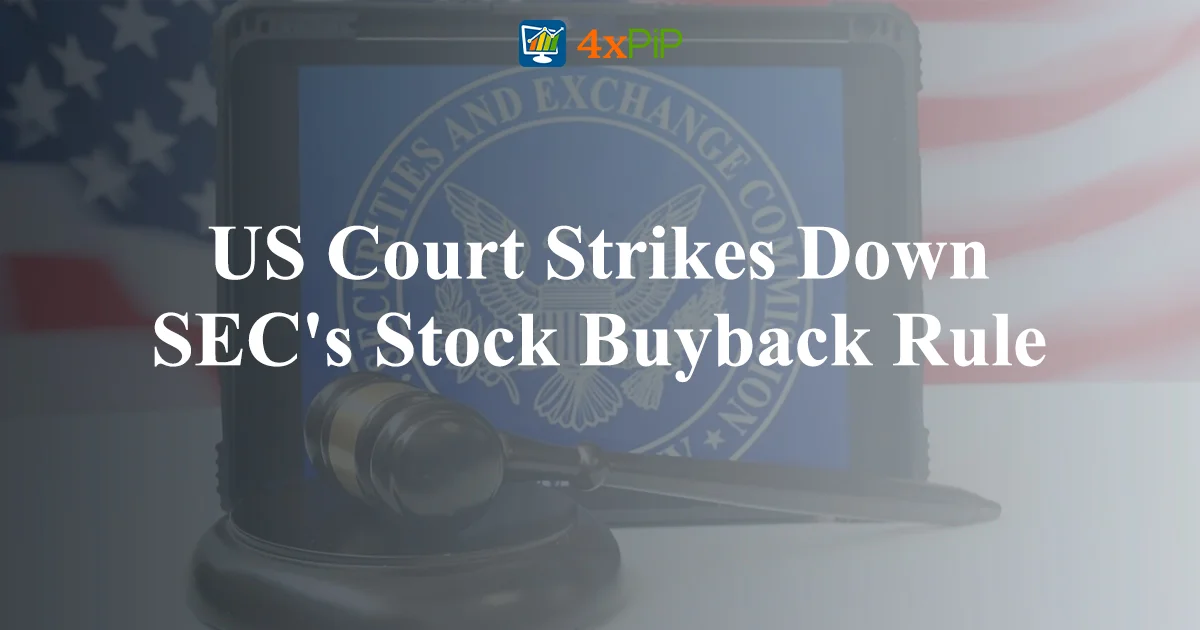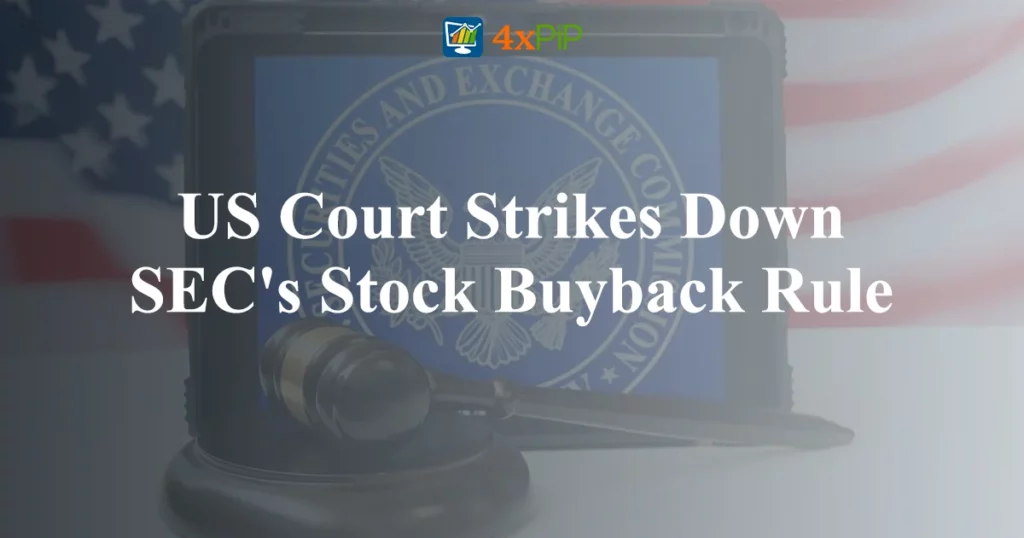In a recent turn of events, the U.S. Securities and Exchange Commission’s (SEC) ambitious move to enhance disclosure requirements for share buyback plans faced a significant setback. A federal appeals court, responding to the legal challenge mounted by the U.S. Chamber of Commerce, ruled against the SEC’s attempt to enforce greater transparency in share repurchases. This decision, following a 3-2 vote by the SEC earlier this year, dealt a blow to the regulatory agency’s efforts to mandate quantitative disclosure of daily repurchases, totaling nearly $950 billion in 2022, on a quarterly or semi-annual basis.
Before delving into the implications of this ruling, check out 4xPip, your go-to resource for trading tools and EAs at 4xPip. Elevate your trading experience with expert tools and strategies. For inquiries, reach out to [email protected].
Background:
The SEC’s push for increased transparency faced resistance from the U.S. Chamber of Commerce, a formidable business lobbying group. Adopted earlier this year via a 3-2 vote, the rule aimed to compel companies to provide detailed information about their share buyback plans. However, the U.S. The Fifth Circuit Court of Appeals, in response to the Chamber’s legal challenge, gave the SEC a 30-day deadline to rectify perceived “defects” in the rule. Additionally, the court argued that the SEC had violated the Administrative Procedure Act and failed to conduct a proper cost-benefit analysis—shortcomings that needed correction.
Court’s Ultimatum and SEC’s Response:
The October ruling set a clear ultimatum for the SEC, mandating corrections within 30 days. The court specified that the SEC’s failure to address the identified issues during the rule-making process and its deficient cost-benefit analysis required immediate attention. Despite the SEC’s claim of diligently working to comply with the court’s orders, the agency failed to meet the deadline, leading to a resounding rejection by the court last month.
Judicial Critique:
Circuit Judge Jerry Smith, a Ronald Reagan appointee, expressed dissatisfaction with the SEC’s handling of the matter. Additionally, emphasizing that the agency returned “empty-handed,” Judge Smith reiterated that the rule remained as flawed and unlawful as it was on October 31, 2023. This critique furthermore underscores the court’s unwavering stance on the importance of due process and comprehensive analysis in regulatory decision-making.
SEC’s Response and Future Steps:
In response to the court’s ruling, an SEC spokesperson expressed disappointment while highlighting specific aspects where the court had rejected challenges. Despite setbacks, the spokesperson noted that the court dismissed challenges related to the First Amendment and the rule’s comment period. Looking ahead, any recommendations regarding share repurchase disclosures will be presented to the commission.
Summary:
The recent court decision represents a triumph for the U.S. Chamber of Commerce and a setback for the SEC’s pursuit of increased transparency in share buyback plans. As the regulatory landscape continues to evolve, the SEC faces the challenge of addressing the court’s concerns while balancing the need for robust disclosure practices. The implications of this ruling resonate not only with regulatory decisions but also in shaping the ongoing discourse on corporate transparency and accountability.





